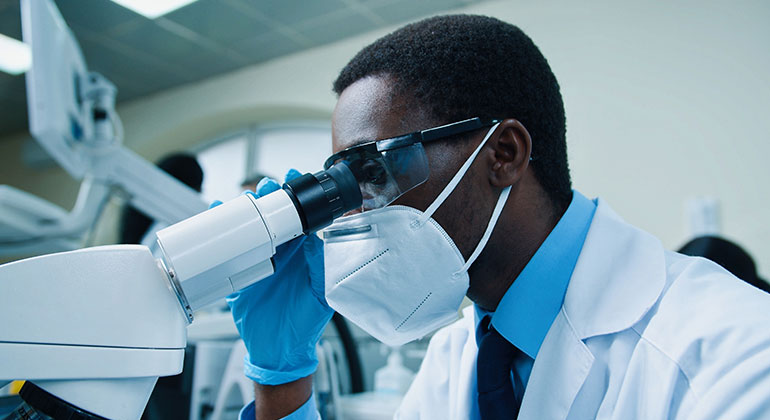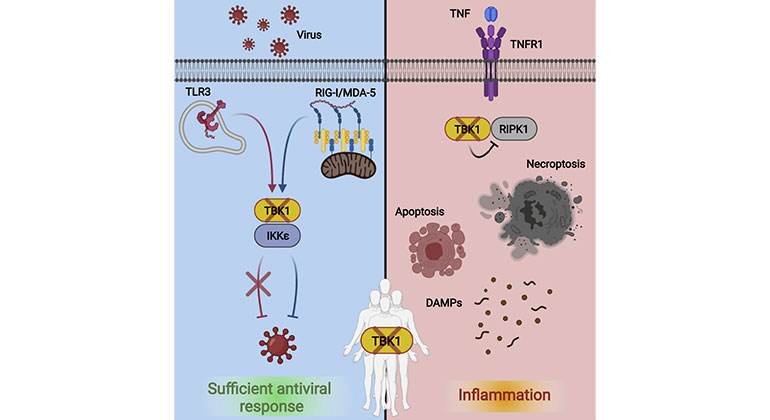Skin Exposure May Contribute to Early Risk for Food Allergies
Skin exposure may contribute to early sensitization, according to study led by Mount Sinai researchers.
Many children may become allergic to peanuts before they first eat them, and skin exposure may contribute to early sensitization, according to a study in mice led by Mount Sinai researchers and published today in the Journal of Clinical Investigation. Early in the process of developing an allergy, skin exposure to food allergens contributes to “sensitization”, which means the immune system in the skin becomes reactive to proteins in foods such as peanuts.
The question of how peanut allergies start is an important one, given the extremity of some reactions, the prevalence (1 to 2 percent of the population), and because such allergies tend to be lifelong.
Past studies have shown that children may first become allergic when exposed to peanut proteins through breast milk or in house dust, but this current study adds skin exposure to the list of culprits that make a child allergic by the first time they taste a peanut. The results also identify elements of the human immune system in the skin as targets for future treatments or preventive efforts.
“The peanut protein responsible for most allergic reactions in humans is seen as foreign or dangerous by the immune system of the skin,” said Cecilia Berin, PhD, Associate Professor of Pediatrics at the Icahn School of Medicine at Mount Sinai. “Blocking those immune pathways activated in the skin prevented the development of peanut allergy in the mice, and our next step will be to confirm this in humans.”
In a collaboration among the Jaffe Food Allergy Institute, The Mindich Child Health and Development Institute, Immunology Institute, and Tisch Cancer Institute at The Mount Sinai Hospital, researchers exposed mice to peanut protein extract on the skin and observed that repeated topical exposure to peanut allergens led to sensitization and a severe, whole-body allergic reaction upon a second exposure. The data found that peanuts are allergenic due to inherent components the lead to a more robust immune response. These findings suggest that skin exposure to food allergens contributes to sensitization to foods in early life.
“This research helps us to understand why peanut, out of the many foods in our diet, is such a common cause of food allergy,” said Berin. “If we identify how the immune system recognizes peanut as a danger, we may eventually learn how to block that pathway and prevent the food allergy altogether.”
About the Mount Sinai Health System
Mount Sinai Health System is one of the largest academic medical systems in the New York metro area, with more than 43,000 employees working across eight hospitals, over 400 outpatient practices, nearly 300 labs, a school of nursing, and a leading school of medicine and graduate education. Mount Sinai advances health for all people, everywhere, by taking on the most complex health care challenges of our time — discovering and applying new scientific learning and knowledge; developing safer, more effective treatments; educating the next generation of medical leaders and innovators; and supporting local communities by delivering high-quality care to all who need it.
Through the integration of its hospitals, labs, and schools, Mount Sinai offers comprehensive health care solutions from birth through geriatrics, leveraging innovative approaches such as artificial intelligence and informatics while keeping patients’ medical and emotional needs at the center of all treatment. The Health System includes approximately 7,300 primary and specialty care physicians; 13 joint-venture outpatient surgery centers throughout the five boroughs of New York City, Westchester, Long Island, and Florida; and more than 30 affiliated community health centers. We are consistently ranked by U.S. News & World Report's Best Hospitals, receiving high "Honor Roll" status, and are highly ranked: No. 1 in Geriatrics and top 20 in Cardiology/Heart Surgery, Diabetes/Endocrinology, Gastroenterology/GI Surgery, Neurology/Neurosurgery, Orthopedics, Pulmonology/Lung Surgery, Rehabilitation, and Urology. New York Eye and Ear Infirmary of Mount Sinai is ranked No. 12 in Ophthalmology. U.S. News & World Report’s “Best Children’s Hospitals” ranks Mount Sinai Kravis Children's Hospital among the country’s best in several pediatric specialties.
For more information, visit https://www.mountsinai.org or find Mount Sinai on Facebook, Twitter and YouTube.

Researchers Identify Potential Target for Treatment Among Patients With Type 2 Diabetes
Aug 04, 2022 View All Press Releases
Mount Sinai Appoints Bruce D. Gelb, MD, as Dean for Child Health Research
May 17, 2022 View All Press ReleasesMount Sinai Researchers Discover Treatment Option for Rare Genetic Disorder
Aug 04, 2020 View All Press ReleasesTeeth Reveal Lifetime Exposures to Metals, Toxins
Jul 22, 2015 View All Press ReleasesBlood Test May Predict Severity of Peanut and Seafood Allergies
Apr 01, 2015 View All Press ReleasesMount Sinai Scientists Identify First Gene Linked to Heart Muscle Disease in Children
Apr 28, 2014 View All Press Releases
